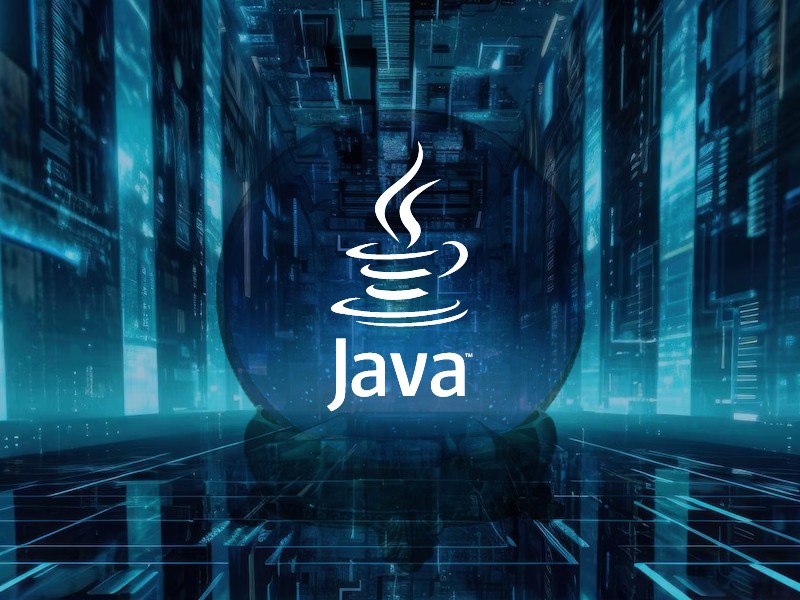Future of Java: The Top 7 Java Trends (2025)

If you look for the most recent technological advances in programming languages, most times, Java’s name always appears on the list amongst the trend. Java is a potent programming language that may be used to create complex software for various devices and integrated systems and the demand has always been increasing even after inception of many other programming languages.
Even though Java has existed for quite some time, there is still high demand for Java for enterprise software solutions. Using the latest Java technologies for your project you can keep up with up-to-date consumers.
In this blog post, we will look at some of the new Java technologies you should be looking for in the coming days. Read on!
What Is the Future of Java?
Java is a trusted and customizable programming language that has transformed the entire field of software development. Powered by comprehensive libraries and tools, Java helps developers swiftly create high-quality, dependable programs. However, in recent years, Java has had to contend with fierce competition from languages such as Python and Kotlin. So, let’s take a look at what does the future of Java hold?
Java will undoubtedly continue to be a widely used language in the future. The strong demand for proficiency in Java stems from the large installed base of Java applications. Additionally, Java is frequently updated with new features and capabilities, enabling it to stay relevant in a constantly evolving market. However, it’s feasible that Java may only modestly cede its dominance to emerging languages in the future, particularly in web development. Nevertheless, Java remains a vital part of the software development ecosystem, and the future of Java looks bright. To better understand the prospect of using the language, let’s take a closer look at the latest Java trends:
DevOps
One of the latest trends in software development is DevOps. It is a set of practices that integrate software development and operation to improve the efficiency of the software delivery process.
DevOps is particularly well suited to Java applications because of its strong tooling support and the large ecosystem of the language. In addition, using containers and microservices has made it easier to deploy and manage Java applications in a DevOps environment. As a result, we expect more and more organizations to adopt DevOps for Java projects in the coming years.
Cloud Computing
Cloud computing is another trend that is changing and complementing the image of Java. The Cloud provides a scalable, pay-as-you-go platform that can be used to host Java applications.
In addition, cloud services such as Amazon Web Services and Google Cloud Platform offer many benefits that you can use to create, deploy and manage Java applications. As the adoption of Cloud computing services continues to grow, we expect to see more Java developers taking advantage of these platforms.
GitHub Future
GitHub is a popular platform for code sharing and project collaboration. GitHub is considered the latest technology and has become an essential tool for Java developers because it hosts many popular projects. In addition, GitHub offers many features to facilitate Java application development, such as issue tracking, patch requests, and code reviews. As the number of Java developers on GitHub continues to grow, we expect the platform to become even more important to the Java community.
VS Code Adoption
Code editors have come a long way in recent years. In the past, developers struggled with bulky IDEs that were difficult to configure and slow to start. However, modern code editors like Visual Studio Code (VS Code) have changed the game by offering a sleek user interface, an extensive ecosystem of plugins, and powerful debugging tools. VS Code has quickly become the editor of choice for many developers, and it is widely considered one of the best code editors on the market. So does this trend mean that VS Code is poised to take over as the default IDE for Java development?
Undoubtedly, it is possible. Many of the top Java developers in the world have shifted to utilizing VS Code as their primary IDE due to the enormous advancements. It has thus also achieved excellent recognition in the Java development community. VS Code can take over as the standard IDE for Java development if it can maintain its momentum. Of course, other strong rivals like IntelliJ IDEA and Eclipse exist. But if VS Code can maintain its current trajectory, it seems likely that it will eventually become the go-to IDE for Java development.
Artificial Intelligence (AI)
It is no secret that artificial intelligence (AI) is rapidly evolving. Although AI is still in its infancy, it has already had a significant impact on various industries. As AI technology continues to grow, limitless potential applications keep coming into existence.
Java, one of the most widely used programming languages, is ideal for building powerful AI ecosystems. It is the best option for developing applications that can run on any device due to its portability and platform independence. In addition, the object-oriented nature of Java makes it easy to develop complex algorithms. With its extensive ecosystem of libraries and tools, Java provides developers with everything they need to build powerful new technologies and AI applications. So, the latest Java technologies are best suited for AI.
From the other angle, in future, AI is likely to have a significant impact on the development of Java. As more businesses adopt AI technology, the demand for Java developers with AI expertise will grow.
Spring Framework
Spring is a secure component-based framework for Java that helps developers build applications faster and easier. It provides many features, including a flexible Dependency Injection container, aspect-oriented programming, data access, transaction management, and more. With so many features, it’s no surprise Spring is becoming the top choice for Java development.
It is safe to say that Spring will continue to be a significant trend in Java development. Its popularity is only growing as more and more developers discover its benefits. As the framework evolves, it will become more powerful and easier to use. So if you want to stay ahead in Java, keep an eye on Spring.
Mobile/Android Development
Mobile app development is another area where Java is being used extensively. Java is widely utilized is mobile development for Android. Android is the world’s most commonly used mobile platform, and Java is the primary language used to create Android applications. The creation of cross-platform mobile applications using frameworks like React Native is also done using Java. We anticipate more Java developers concentrating on this field as the need for mobile applications rises.
Wrapping Up
As we saw, the latest Java technologies have been drawing businesses towards increasing Java adoption. Despite new programming languages, platforms, and frameworks emerging and hitting the software development landscape, Java continues to maintain its identity, and the adoption and scale- be it by a typical software development firm or enterprises has always been on rise.
The future too holds new promises for the language, as its use of Java for software development will continue to flourish. Connect with us and know how you can leverage the power of these latest Java trends to drive growth and scale in your business.
FAQ
What is the future scope of Java?
Java has a bright future. It is widely used in many industries, including financial services, retail, and healthcare. In addition, newer technologies like artificial intelligence and the internet of things are being built using Java. So the demand for Java developers is likely to continue to grow in the future.
Is Java still in demand in 2022?
Yes, Java is still in demand in 2022. Millions of developers use Java as one of the most popular programming languages worldwide.
Can Java survive in the future?
Yes, Java can survive in the future. It is one of the world’s most widely used programming languages and has a large community of developers who are constantly working on new features and improvements.
What is the future of Android development with Java?
The future of Android app development with Java looks bright. Java is the primary language for developing Android applications, and the demand for Android apps is only increasing. As the platform evolves, we expect more Java developers to work on Android app development.


